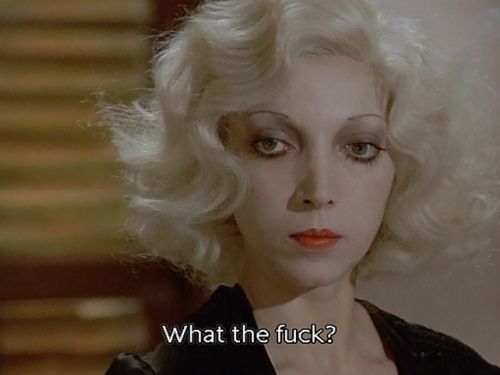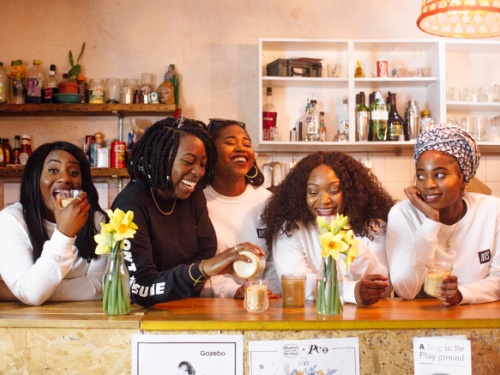Through The Rusting Gates And Beyond
Are Film Festivals Still A Critical Platform For Emerging UK Black And Minority Filmmakers?
To mark the final week of the London Short Film Festival, ICA Assistant Sales Manager and filmmaker/director Dionne Edwards discusses with programmers and fellow filmmakers whether festivals remain a critical platform for the UK's minority filmmakers.
Traditionally, film festivals have been that critical step in a filmmaker’s journey – a way to reach an audience and to raise the filmmaker’s profile, theoretically making it easier for them to get their next film made. But with many, for lack of a better term, ‘minority’ filmmakers finding large audiences online and creating buzz through hits instead of laurels, can film festivals still progress careers?
When Black American filmmaker and distributor Ava DuVernay said “this industry is no longer what it used to be. The gatekeeper’s gates are rusting,” she was referencing the changing global landscape in film-watching and distribution. This is particularly relevant when it comes to opening the conversation about the relevance of film festivals as a way to get your voice into the world: “There are new ways to shoot, new ways to monetize, new ways to distribute, new audiences to find, new ways to communicate with them that don’t require some old man telling you, “you can do it”.”
I am a Black queer woman and a filmmaker. I’ve made a string of short films and acquired a thick skin and lots of patience along the way. If making the film isn’t hard enough, the challenge of getting a film in front of an audience is a real shock to the system. Film festivals are competitive. There’s a lot of rejection. I once heard a festivals expert at an industry talk advise that even the best short films are likely to get into just one festival for every eleven they are submitted to – that’s a lot of money and admin when you’re coming up. And for Black and minority filmmakers, getting into festivals can be an even bigger hurdle.
There are new ways to shoot, new ways to monetize, new ways to distribute, new audiences to find, new ways to communicate with them that don’t require some old man telling you, “you can do it”.
Over the years, I’ve attended a lot of short film festivals in the UK and I’ve noticed that even at festivals in cities with large and diverse communities, the film programmes are usually made up of mainly white stories. I’m not alone in feeling this. Director/editor Claire Kurylowski points out that mainstream festival programming has been “defined by a hegemony which centres Western, white, cis-gendered, male authored narratives and storytelling”.
Of course, there are now many minority-focused film festivals, seasons and events running parallel to the mainstream or BAFTA-recognised festivals. To curator, programmer and writer Manish Agarwal these events, such as the BFI’s recent Black Star season, are both overdue and “vital for highlighting an oft-ignored, long-running continuum of creativity”. He also notes that they contribute to “developing a wider context in which work that has yet to be made can thrive”.
If making the film isn’t hard enough, the challenge of getting a film in front of an audience is a real shock to the system
My 2014 short Hi, Miss! got into a string of Black and African-American focused festivals before being accepted to UK BAFTA-qualifying festivals. It was frustrating to initially just be recognised by niche festivals, but it was certainly a confidence booster to get in and a pleasure to watch it with enthusiastic audiences. Agarwal argues that the existence of speciality festivals and seasons should not let mainstream festivals off the hook. He adds that “mainstream organisations often receive public money and therefore have a duty to properly reflect the society which funds them”. At times, festival programming can feel limited and tokenistic when it comes to showcasing work by minorities, so it’s no wonder that so many filmmakers have chosen to bypass the festival route altogether.
Filmmaker and curator Koby Adom says online platforms offer “new avenues of exposure which are accessible to all” which “minority filmmakers have used to their advantage”. Indeed, filmmakers like Joy Gharoro-Akpojotor (creator of the web series BOXX) Amelia Umuhire (Polyglot) and Elijah Quashie (of the recent viral smash The Pengest Munch) all simply prove Koby’s point. Viral hits can lead to mainstream recognition, perhaps encapuslated by Cecile Emeke and Kayode Ewumi’s series Ackee and Saltfish and #HoodDocumentary (respectively), which both blew up on the web and quickly moved to BBC3.
At times, festival programming can feel limited and tokenistic when it comes to showcasing work by minorities
The net has democratised the system, but brought its own problems: oversaturation of content means you now have to be your own marketer, distributor and publicist to make your films stand out. Filmmaker Dean Leon Anderson describes the difficulty in discovering quality productions online, as “everyone now has access to equipment [so there are many] mediocre films posted”. And just as it’s easy to get funnelled into a festival niche, it can be hard to reach online audiences outside of your most obvious demographic too. Kurylowski adds that the main challenge of being a LGBT filmmaker is “only... making films/content in alignment with this identity”, and ending up typecast as a director of the niche genre of LGBT film.
Though artists like Emeke and Ewumi are changing the game, for many it is still festival success that makes filmmakers stand out. Mainstream festivals have what Kurylowski calls “cultural capital: historical prestige, greater reach and international recognition”. For a lot of filmmakers, it means something to be chosen by these bodies – and I’ve certainly benefitted from festival exposure myself. Once Hi, Miss! had mainstream success (it won the audience award at the East End Film Festival and played at LSFF in 2016), doors opened for me. Without that exposure, I would not have won London Calling Plus funding from Film London for my short We Love Moses, which premiered at BFI's London Film Festival and is at LSFF this year. In fact, festival success was actually part of the eligibility criteria for London Calling Plus.
The obvious answer is that platforms can and do co-exist. Filmmakers will continue to be creative, build audiences and attract funders using the internet as a resource, and it’s amazing that ‘minority’ filmmakers now don’t need anyone’s permission to reach audiences – though it would be a shame if that took the pressure off of film festivals to diversify their programming. As Agarwal puts it, “there's a lot of talk about 'diversity' – a word which curatorial bodies want to be seen doing... when really it should be inherent to their programming DNA.”
The key to change still remains with these bodies to examine who they are choosing as their gatekeepers. ■
Dionne Edwards' work as a writer/director can be found at Teng Teng Films. LSFF continues at the ICA until 15 January.
This article is posted in: Articles, Events, Film
Tagged with: London Short Film Festival, LSFF





/index.png?itok=qcQMXTv9)



